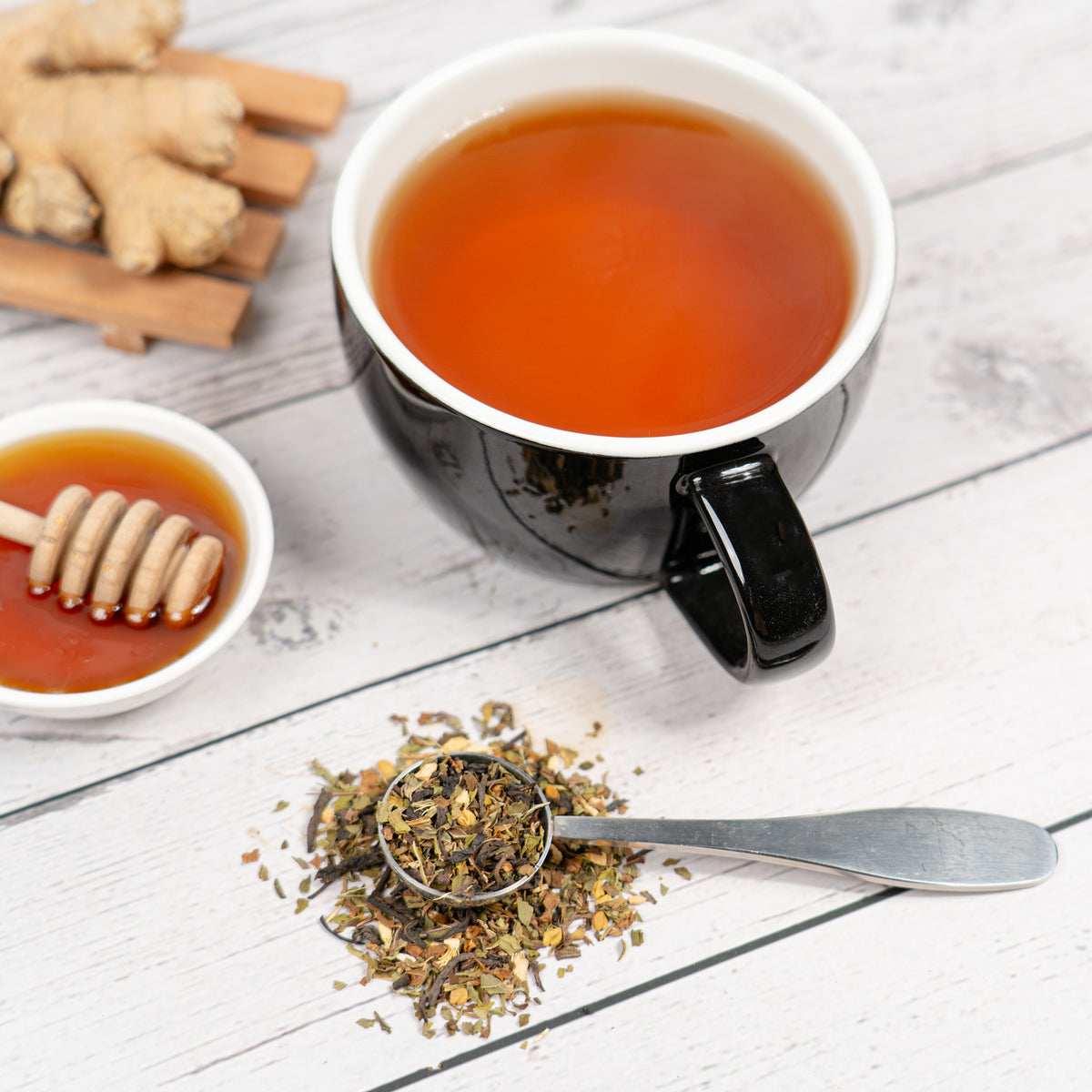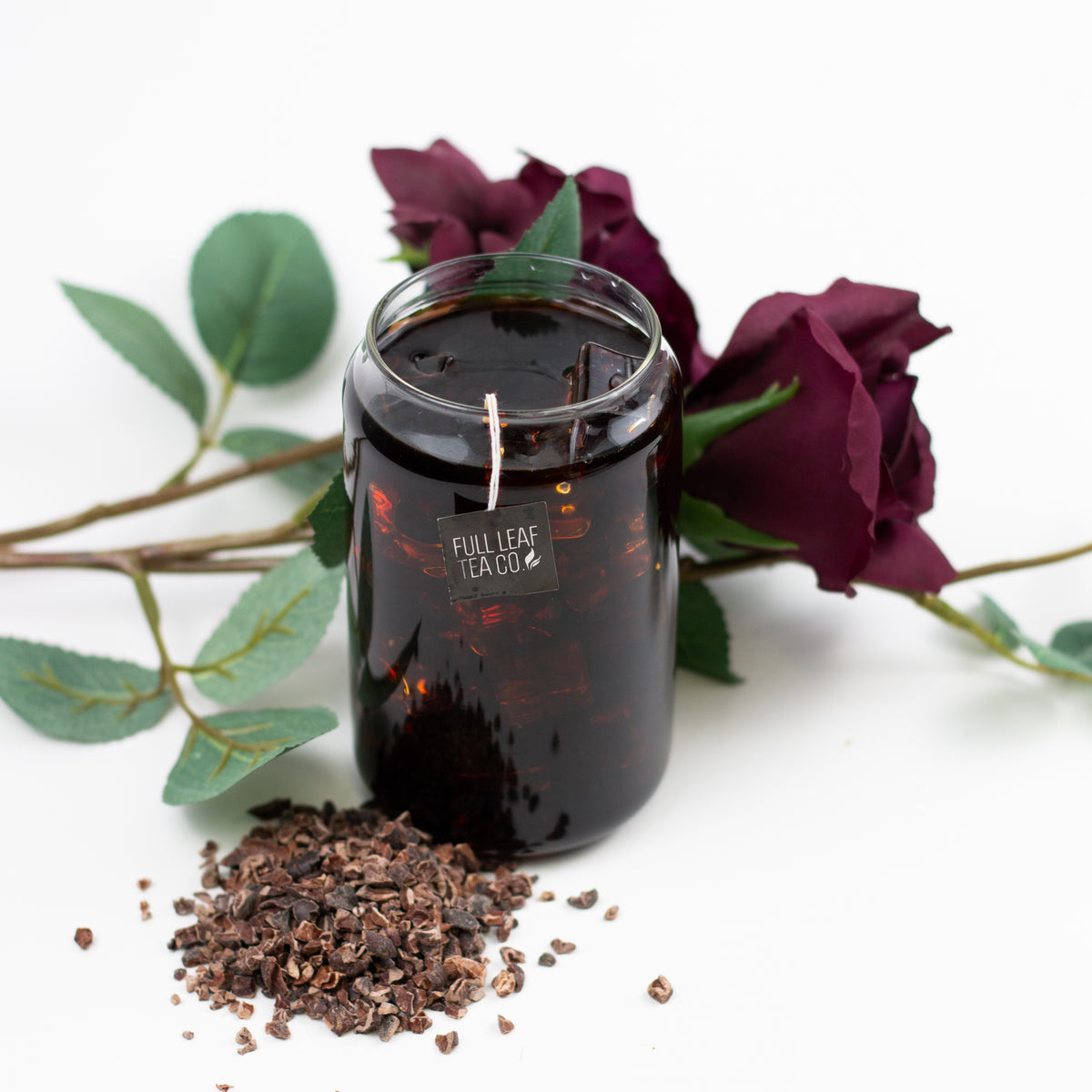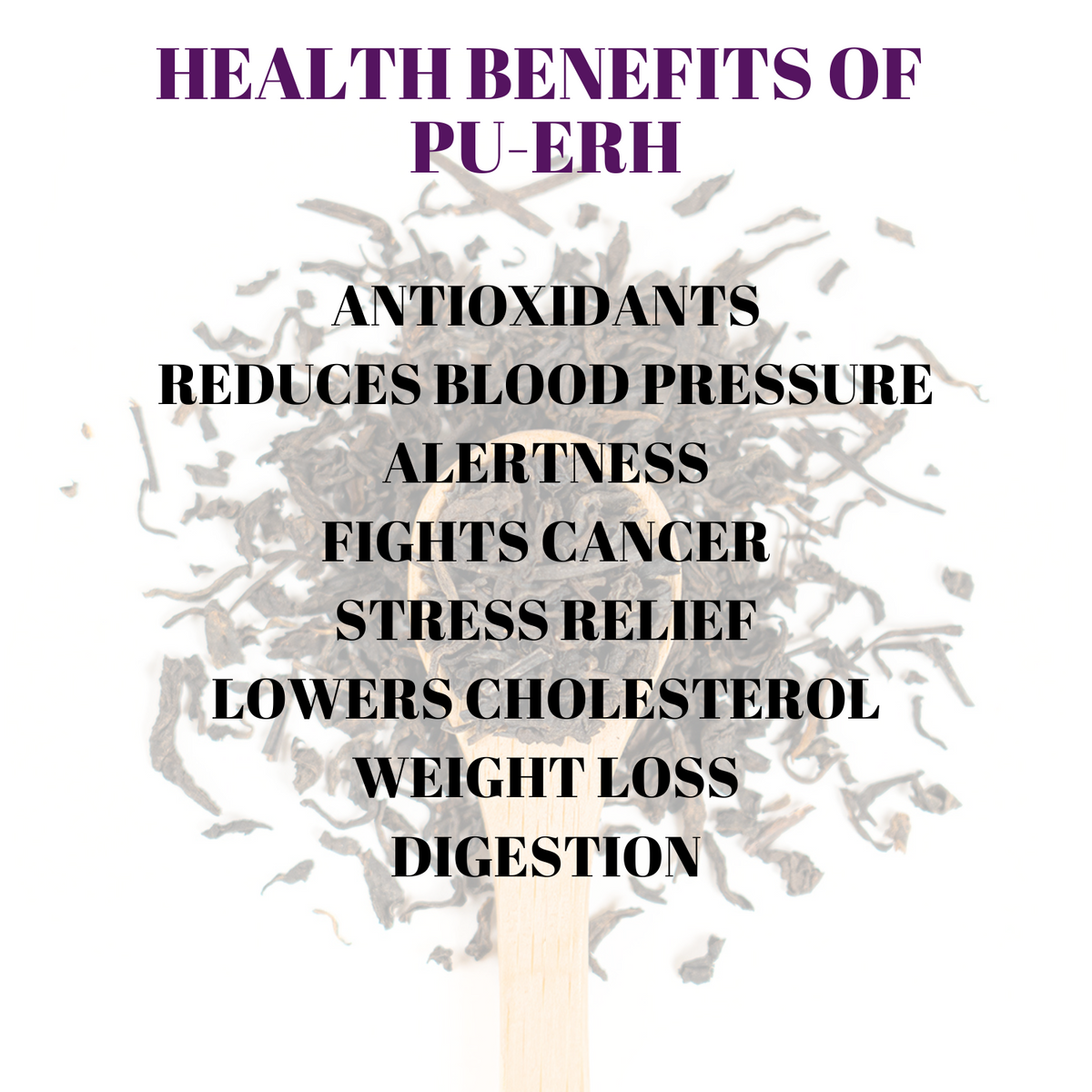Guide to Pu-Erh – Benefits, History, Prep
What is Pu-Erh?
Pu-Erh tea also commonly known as ‘Puer’, ‘Po Lei’, ‘Bolay’ tea and ‘Dark Tea’ or ‘Black Tea’ in China is a tea made in China.
Pu-Erh is made from the Camellia Sinensis tea, the same plant which is used to make green and black tea. Pu-Erh however; is fermented and oxidized which gives the tea a unique deep, earthy flavor. The fermentation of Pu-Erh even gives the tea an incredible shelf life and allows the tea to age well. Read below to learn more about the benefits, taste, and character of Pu-Erh tea!
Pu-Erh Tea Benefits
Pu-Erh tea has fantastic health benefits that increase through its fermentation process and age. Uses include lowering cholesterol, reducing blood pressure, preventing cancer, improving mental health and stress, and aiding weight loss. Here are the benefits in detail:
Antioxidants
Though Pu-Erh contains antioxidants, it’s less of an antioxidant powerhouse than green and black tea. Antioxidants prevent damage caused by free radicals, an unstable atom which damages cells – causing illness and aging.
Lowers Cholesterol
Pu-Erh is widely known to aid in lowering cholesterol levels. A 2009 study by Experimental Gerontology shows Pu-Erh was able to help lower LDL while raising HDL. The study showed consuming Pu-Erh tea can play a significant role in reducing the risk of heart disease.
Reduces Blood Pressure
The same antioxidants which can help prevent damage caused by free radicals can help protect the heart and blood vessels.
Fights Cancer
Pu-Erh tea has been shown to prevent tumor cells' growth, and though research has been conducted on the tea, its properties are still relatively unknown.
Improves mental alertness and focus
Research conducted around Pu-Erh and its effect on the brain has shown the tea keeps the brain healthy and can improve alertness and focus while promoting brain health.
Reduces stress
Though Pu-Erh contains caffeine, the tea doesn’t contain as much caffeine as other teas such as Yerba Mate or Matcha. Additionally, Pu-Erh tea’s inflammatory properties aid in relaxation while reducing aches and pains.
Aids in weight loss
Pu-Erh can help promote weight loss! A study showed animals with induced obesity given Pu-Erh extract had significantly reduced total body weight compared to their counterparts, which had not received the extract.
Improves digestion
Pu-Erh has been shown to help balance the bacteria in your stomach and shows the age of Pu-Erh increases the effectiveness of digestion.
What does pu-erh tea taste like?
Don’t be turned off by pu-erh’s fish smell, quality pu-erh has a deep, rich, and earthy flavor that often appeals to coffee drinkers while bad pu-erh tastes muddy or moldy. This deep, rich flavor is balanced with our Organic Cocoa, Organic Cocoa Mint, and Chai Pu-Erh blends.
Pu-Erh is traditionally consumed in China and Hong Kong after a large or greasy meal due to its widely known flavor and health benefits.

History of pu-erh
Pu-erh dates back to the Tang Dynasty and was frequently traded across China’s borders, most often with Tibet as Tibet’s elevation did not allow tea crops to grow. Pu-erh got its name from the city the tea was most frequently traded in (Pu’er City).
The trip to Tibet took several months during which the tea was often exposed to moisture. Combined with bacteria on the leaves, this allowed the tea to ferment. It didn’t take long for people to discover that pu-erh, which had been aged for longer, tasted better.
As the demand in the late 1900s grew, a more efficient method of fermenting tea became popularized. This method, called “wòduī,” allowed the tea to ferment in a matter of months rather than years. Pu-erh connoisseurs often age their tea for years to achieve their ideal flavor profile.
Does pu-erh tea have caffeine?
Pu-Erh tea is one of the most caffeinated teas you can drink. Depending on how strong the tea is, there can be 70mg of caffeine per 8 oz of tea. The average cup of coffee can have around 100mg of caffeine. However, the longer pu-erh ages, the less caffeine it contains. If you’re looking for tea packed with caffeine, we recommend yerba mate, matcha, or black tea!
How do you steep pu-erh tea?
Add 1 tsp of pu-erh tea to an infuser. Let the tea steep for 3 to 5 minutes in 8 oz of boiling temperature filtered water. After the tea is done steeping, remove the tea leaves from the liquid and enjoy!

Where can I buy pu-erh tea?
Pu-Erh tea can be found online! Shameless plug: but as of writing this, we sell 6 different types of pu-erh teas. We’re USDA certified organic, and our products are vegan and free of GMO’s. To top it all off, we have over 10,000 positive reviews, so feel free to try us out!
Shop Pu-Erh Tea →